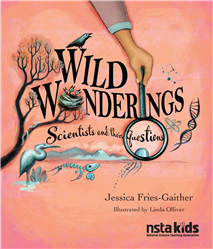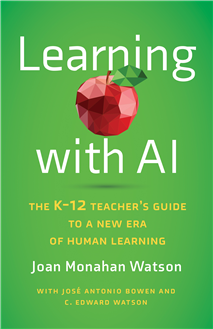All Inquiry resources
Reports Article
Freebies and Opportunities for Science and STEM Teachers, December 9, 2025
By Debra Shapiro
Reports Article
Freebies and Opportunities for Science and STEM Teachers, December 2, 2025
By Debra Shapiro
Reports Article
Freebies and Opportunities for Science and STEM Teachers: November 18, 2025
By Debra Shapiro
Reports Article
Freebies and Opportunities for Science and STEM Teachers, September 16, 2025
By Debra Shapiro
Reports Article
Freebies and Opportunities for Science and STEM Teachers, August 5, 2025
By Debra Shapiro
Reports Article
Freebies and Opportunities for Science and STEM Teachers, February 4, 2025
By Debra Shapiro
Journal Article
Warming up to Inquiry: Using inquiry to teach heating and cooling of substances to 2nd graders
Starting to teach science through inquiry can be intimidating for teachers who don’t have much experience with it. Some concerns about teaching science through inquiry often come from misunderstandings of what science entails (Authors et al., 2015...
By Jesse Wilcox, Maizee Lindsey, Karissa Steinke
NSTA Press Book
Wild Wonderings: Scientists and Their Questions
Click here to view video of Wild Wonderings Let your curiosity run wild! This lively book will inspire you to ask questions like scientists do. Why? Because questions can lead you to amazing discoveries. Like what? Like when theoretical physicist ...
By Jessica Fries-Gaither
NSTA Kids
Wild Wonderings: Scientists and Their Questions
Click here to view video of Wild Wonderings Let your curiosity run wild! This lively book will inspire you to ask questions like scientists do. Why? Because questions can lead you to amazing discoveries. Like what? Like when theoretical physicist ...
NSTA Press Book
Learning with AI: The K-12 Teacher’s Guide to a New Era of Human Learning
Unlock the Future of Education with "Learning with AI" Discover how artificial intelligence is transforming education with "Learning with AI," a pivotal co-publication from Johns Hopkins University Press and the National Science Teaching Assoc...
By Joan Monahan Watson
Reports Article
Freebies and Opportunities for Science and STEM Teachers, November 19, 2024
By Debra Shapiro
Reports Article
Freebies and Opportunities for Science and STEM Teachers, November 5, 2024
By Debra Shapiro
Journal Article
Right to the Source November/December 2024...
By Michael Apfeldorf
Journal Article
Direct experiences in the living world are a major ally in helping students understand biology and the practice of science, and in fostering a lifelong love for nature. The positive impact of field study on students’ experiences and outcomes, and t...
By Barry McPhail
Journal Article
Developing Critical Thinking in Biology Through Progressive Writing Assignments
Critical thinking is essential in academia and the workforce. Although writing can be used as a pedagogical tool for fostering deeper subject matter understanding, increased retention, and critical thinking, relatively few science courses are writing...
By Irene Guttilla Reed, Michelle Kraczkowski, Steven Pearlman





